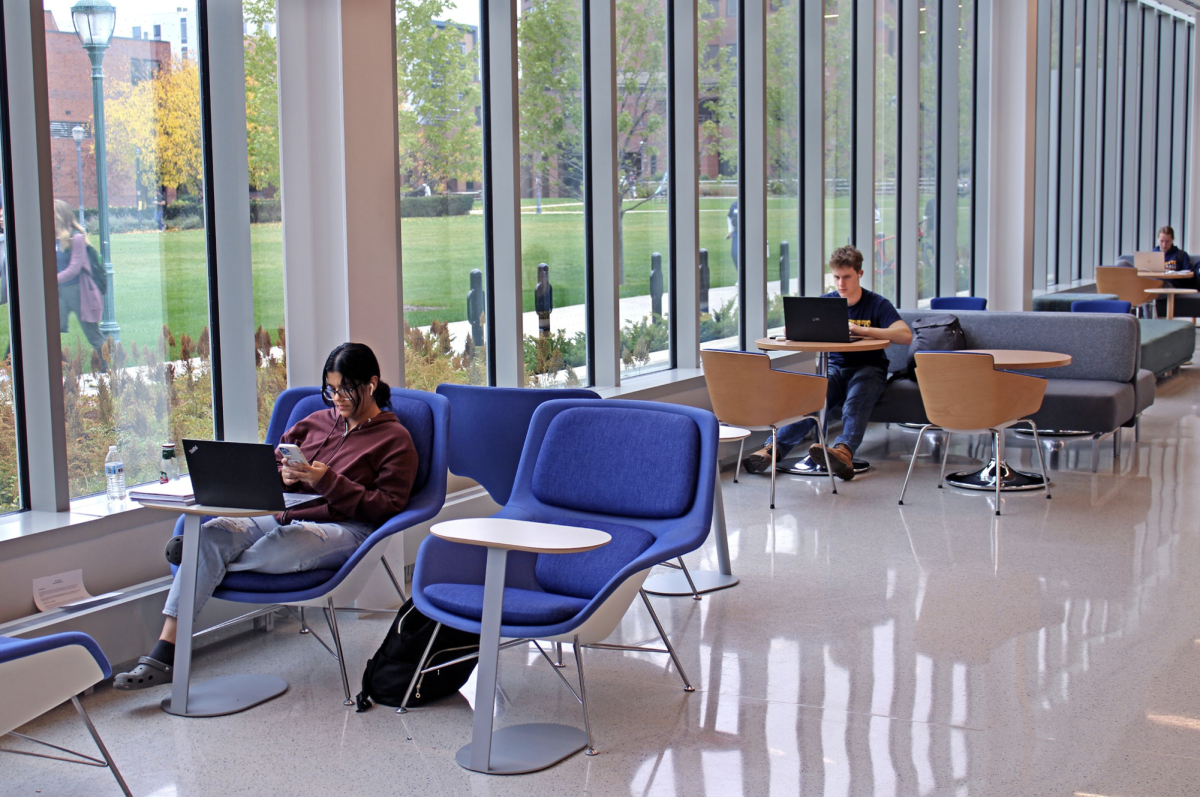Recent developments in artificial intelligence are causing debates worldwide about how society will deal with these new systems. Many institutions are creating policies regarding how this new technology will be used appropriately in an academic setting.
Marquette’s Board of Academic Integrity released a statement on the usage of AI and how the university plans to address it.
However, Marquette has not given an official policy on the usage of AI itself. Instead, the statement made clear guidelines for teachers and students on what to expect with this new extension of technology.
Marquette’s AI Statement
In its AI statement, Marquette does not want to condone or forbid the usage of AI. Instead, the university leaves the decision on whether AI will be allowed in the classroom up to the professor.
“The university strongly recommends that each instructor make clear both in a course’s syllabus and during class time what the specific expectations for that class are about these new technologies,” the academic integrity board wrote in a statement.
Giving instructors control allows them to utilize any AI programs in their classrooms. This also sets a guideline for what crosses the line when it comes to academic integrity by making it intentionally vague.
How are professors using AI?
Jacob Riyeff, teaching associate professor of English and director of the Academic Integrity Board, said that he disagrees with the evolution of AI.
“I am not someone who cares much for computing for its own sake. I get that it allows us to do many things more efficiently, and it connects us in some ways. But I tend to linger on how it leads us to not connect with each other in person,” Riyeff said.
However, Riyeff said he does agree that, if used when permitted, AI could be beneficial for its applications.
Riyeff said that the board had some varying opinions of what the new statement should look like. But overall he said that everyone came to an even consensus of what the statement should look like.
“Certainly some people think that it’s inevitable and want to let it happen. But I’ve been trying to forge a middle path for myself very deliberately. But yes, I’ve heard many different takes on what we should do and for right now the middle path has prevailed for the moment and we’ll have to see where it goes,” Riyeff said
Given the different opinions of AI, Riyeff’s approach allows for AI to be used when appropriate, yet not letting it be applied to everything.
Similarly, Professor and Computer Science Chair, Michael Zimmer, believes that AI’s evolution can be daunting.
“I tend to be less enthusiastic about these things like ChatGPT are actually able to do. I think that they’re very clever at predicting sentences and able to trait things that seem truthful and human-like and sometimes it’s really amusing. But it is simply just really good math. So, I am really cautious to use it in any other way other than playing around with it,” Zimmer said.
Zimmer said that if used in a way that stays within academic boundaries, AI could be beneficial to students who need help.
“I tend not to be in the camp of just completely banning AI altogether. Especially for students where English isn’t their first language and who may struggle with writing. Tools like this can provide a little assistance and confidence for them,” Zimmer said.
Zimmer offers other ways that AI might be used beneficially. He said that, like Riyeff, he doesn’t want to see this form of intelligence taken too far.
How is AI used in the classroom?
Martha Moren, a first year in Arts and Sciences, said AI is a tool she uses to help her studies. She explains that her major, Cognitive sciences, incorporates AI into helping students with the different programs they are developing.
“Sometimes I use ChatGPT to formulate what I want out of a Python Program,” Moren said.
She explains that Python programming can be used to develop different softwares and programs. She uses AI to help check her work when making these programs.
“So, if I’m confused on a loop, which is to make something run continuously, then I can plug in certain parts of my program to help me check it. But it is not generally encouraged to plug your whole assignment in,” Moren said.
Moren said she has mixed feelings on how AI can be used.
“I think it’s interesting. It’s growing so much and so quickly that it can be a little scary. But it definitely is something I feel we have to progress as a society in order to get through to a point where it can be really helpful,” Moren said.
This story was written by Bridget Lisle. She can be reached at [email protected].



